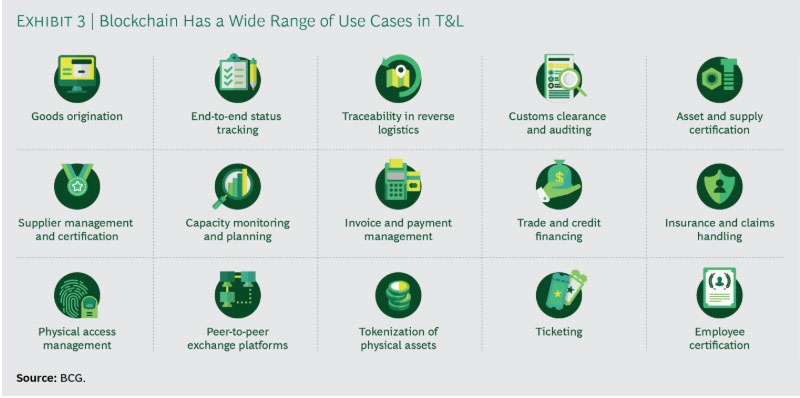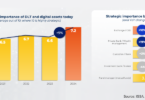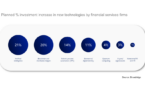Today the Boston Consulting Group (BCG) unveiled a report about blockchain in the transport and logistics (T&L) industry. The key conclusion is that the sector stands to benefit enormously from blockchain. Given the upside, adoption has been slower than expected. However, 88% of survey respondents believe blockchain will create some level of industry disruption.
“The best blockchain networks will be the hardest to create,” says Andrew Schmahl, a BCG partner and coauthor of the report. “By increasing transparency, blockchain can mitigate the mistrust that often exists within the T&L industry’s multiparty transactions. Yet this same mistrust makes it hard to bring together the industry’s diverse participants into a common blockchain ecosystem.”
The report points to the numerous friction points in the logistics industry. Any shipment invariably involves several suppliers resulting in multiple handoffs. Additionally, there are continually evolving regulations. The combination makes shipping error prone. Hence the need for process automation where blockchain can play a crucial role. However, to reap the full benefits blockchain needs to be used in conjunction with other technologies such as the Internet of Things (IoT), machine learning and artificial intelligence.
Researchers at BCG estimate that since 2013 venture capitalists have invested $53 million in blockchain solutions that are specific to shipping and freight management. On top of that, almost $250 million was invested where solutions could have some relevance to the sector.
Survey results
BCG conducted an online survey of over a hundred T&L companies in September and October 2018. 88% of respondents believe blockchain will create some level of disruption in the industry. 59% of respondents think the timing of the disruption will be in the next two to five years.
74% said that they are either exploring blockchain superficially or have not considered it. But blockchain is a top ten strategic priority for 20% of the industry executives surveyed.
The significant challenges are a lack of ecosystem and coordination amongst the industry players according to 60% of those surveyed. 35% consider regulatory compliance a barrier to blockchain adoption.
Major blockchain consortia
In addition to the fifteen use cases shown in the graphic, BGC outlines the four big blockchain initiatives previously covered by Ledger Insights. They are the CargoSmart Global Shipping Business Network which includes five of the top ten container shipping companies in the world – CMA CGM, COSCO Shipping Lines, Evergreen Marine, OOCL, and Yang Ming – as well as major port operators.
There’s TradeLens the high profile IBM / Maersk initiative with more than 60 partners.
The largest shipping freight forwarder Kuehne + Nagel is working with Accenture, Anheuser-Busch InBev, APL and European customs, also for container shipping.
And the Blockchain in Transport Alliance which has almost 500 members exploring how the sector can adopt blockchain, focusing on standards and education.







